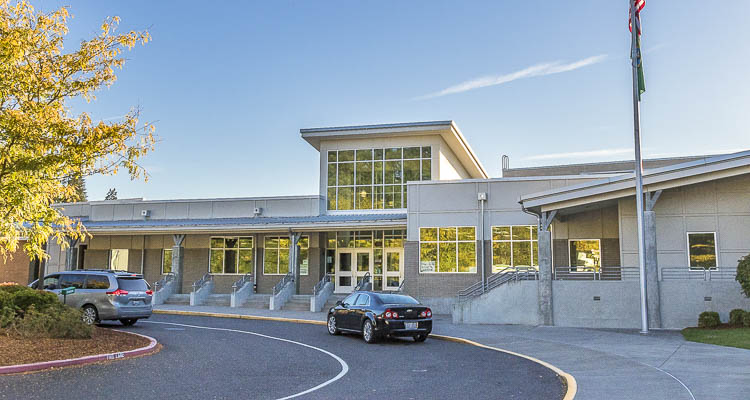
There’s no quick fix when it comes to the crisis in public school funding in Washington state
Ken Vance, editor
Clark County Today
Officials in school districts all over Clark County are in the process of completing the budget process for the 2024-2025 school year. The process was supposed to be made easier since the 2012 Washington State Supreme Court’s McCleary Ruling, which agreed with a previous ruling that the state was not fulfilling its obligation to fully fund education.

Since that ruling, Washington lawmakers have been pouring billions of dollars from the state budget into funding public education. One of the problems with the “McCleary Fix’’ is state lawmakers didn’t tell school districts around the state how to spend those extra funds. For once, they opted for local control. The result of that was each of the 297 school districts around the state were left to negotiate contracts with their teachers unions. Union leaders were adamant that the McCleary money was solely intended to find its way directly into the pockets of teachers.
District officials around Washington state pleaded with lawmakers to give them some cover to spread the McCleary money around to some of the many other areas of school funding that were in need of additional funding. But lawmakers didn’t have the courage to do that and the teachers unions got exactly what they wanted. The overwhelming majority of the McCleary money went directly into higher and higher teacher salaries.
Lawmakers also promised property owners in the state that they would see a reduction in their property taxes, perhaps as much as 30 percent, but that has never materialized.
As a result, the dynamic that has been created here in the state of Washington is that there is no risk for the unions to go into negotiations and ask for everything they can get. If they don’t get it, they just go on strike. Legislators have even gone on the picket line saying ‘give them the money’ when they know the money is not there.
So, fast forward to the summer of 2024, and area school districts are facing budget shortfalls as they go through the budget process. The Evergreen School District has a $19 million budget shortfall and its school board passed the district’s recommendation to cut 124 full-time equivalent positions. The Vancouver School District has a $35 million budget shortfall and its school board passed the district’s recommendation to cut 260 FTE positions. The Battle Ground School District has an $8.5 million budget shortfall. There are not expected to be any layoffs in that district but positions will be eliminated. The district does expect affected employees will be able to find other positions within the district.
The 80/20 rule
This funding dynamic has led to a budget model that forces area school districts to attempt to keep the balance between what they spend on employees vs. what they spend on materials, supplies and other costs – known as MSOCs – at an 80/20 ratio.

“It’s an unwritten guideline,’’ La Center School District Superintendent Peter Rosenkranz said. “We’re a business, but our profit is not what we make and sell. Our profit is growing brain cells and developing skill sets. Our profit is what our kids do when they’re out of high school and are citizens.
“Usually, your MSOCs would be the bulk of your budget because you have inventory of whatever you’re trying to make money with,’’ Rosenkranz said. “With us, it’s mostly employees because, hopefully, it’s our employees who produce citizens who are productive when they leave the schools. That’s how you end up with 80 percent of your budget devoted to personnel.’’
Rosenkranz reports that, due to rising inflation, it is becoming more and more difficult for area school districts to keep MSOCs at a 20 percent level.
“It’s what everyone is experiencing,’’ said Rosenkranz about rising costs on things such as gas prices, which have risen dramatically in Washington state thanks in part to Gov. Jay Inslee’s market-based, cap-and-invest program to reduce greenhouse gas pollution. “The Climate Commitment Act is hitting us to the tune of $7,000 per month.’’
Rosenkranz also reported a 14-percent increase in PUD costs and a 33-percent increase in insurance premiums.
“Those were not predicted costs,’’ Rosenkranz said.
Another challenge for area districts attempting to balance budgets is unfunded mandates – such as special education, transitional kindergarten, and redoing Language Arts standards – handed down by the legislature.
Rosenkranz also pointed out that many districts are dealing with budget issues because more and more of the teaching force is experienced, older teachers. In La Center, he said the district receives $82,000 in funding for each teacher but the actual average teacher salary in the district is $92,000 because of the negotiated salary scale that takes into consideration years in the classroom.
There will always be more money
It’s obvious that the teachers unions aren’t concerned about gobbling up as much of the school funding as they can because they believe the lawmakers will always come up with more when the districts run out.
“The expectation is the legislature will give more money, but I don’t know how much the legislature will be willing to give,’’ Rosenkranz said. “They’re of the mindset that McCleary fixed it. But, McCleary actually exacerbated it.’’
Rosenkranz said there aren’t any obvious answers to the school funding crisis in the state.
“It’s so complex that it’s very challenging,’’ he said. “I think what we’re looking for is a quick fix and there isn’t one. What got us here isn’t going to get us out. We need some innovative thinking when it comes to education.
“I don’t know how what we’re doing is sustainable,’’ he said. “It needs to be fixed because the foundation of our nation is an educated populus. We need some big brain work around this. Just throwing more money at it isn’t going to solve the problem. We’ve tried that with McCleary. How’d that work out for us?’’
Also read:
- Opinion: Courts blocking the Kroger-Albertson merger won’t stop consumers from making choicesPaul Guppy of Washington Policy Center critiques judicial rulings that block the Kroger-Albertsons merger, citing changing consumer trends and potential job losses.
- Opinion: Workers need money — and the many other gifts work can bringElizabeth New Hovde discusses the value of work, its benefits for workers and employers, and its impact on personal growth.
- How Should Washington Taxpayers Handle TriMet’s Proposed Light Rail Costs? Share Your Thoughts!C-TRAN Board reviews TriMet’s proposal for Washington taxpayers to fund 45% of light rail operating costs, sparking local debate.
- Opinion: Get ready for the 2025 legislative sessionNancy Churchill emphasizes the importance of citizen participation as the 2025 Washington legislative session begins.
- Opinion: Thousands of Republicans didn’t vote. Why?Amboy resident Thomas Schenk discusses low Republican voter turnout and election concerns in Clark County.










